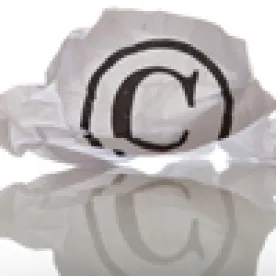Recently, copyright owners suing in the jurisdiction of the United States Court of Appeals for the Fifth Circuit were given a new reason to seek statutory damages instead of actual damages under the Copyright Act. Failure to mitigate damages is not an absolute defense to a claim for statutory damages, the Court ruled on Wednesday, January 15, 2020.
A plaintiff whose copyrights have been infringed has two options for recovery. One option is to ask for the actual amount of damages they sustained and any additional profits gained by the infringer. The other option is to ask for damages based on the range in the Copyright Act of 1976 ($750 to $150,000, in the case of a willful infringer) for each work infringed.
The choice between actual damages and statutory damages is a tactical one based on what can be proven: Is there a significant loss of revenue? Did the infringing party make a large profit on the infringement? How many works were infringed?
If a copyright owner fails to take steps to minimize the damage caused by the infringement, most courts will find their actual damages can be reduced or, theoretically, even eliminated. But what about statutory damages, where Congress has provided for a minimum amount for each infringed work? If a copyright owner fails to mitigate an infringement, can it still seek at least the minimum? This question has received different answers from the District Courts.
The United States Court of Appeals for the Fifth Circuit is now the first appellate court to address this issue. A unanimous panel held that a copyright owner’s failure to mitigate is not a complete defense to a claim for statutory damage.
Energy Intelligence Group, Inc. (EIG) and their UK affiliate publish a newsletter about the global energy industry. Newsletter subscribers Kayne Anderson Capital Advisors, LP, (KA) routinely forwarded the newsletter to non-subscribers within the firm and other third parties. Although EIG allowed KA to leave printed copies in the firm for employees to read, EIG alleged that emailing newsletters to the rest of the firm was copyright infringement. EIG sued KA for statutory damages for, among other things, each instance of copyright infringement.
KA argued, for its part, that not only did EIG know that their newsletter was being shared years before they sued KA, but EIG purposely never told KA that each instance of infringement could carry a penalty of $750 to $150,000. All this could have been avoided, KA argued, if EIG told KA to just print out and share paper copies. KA argued that EIG deliberately failed to mitigate to enable the statutory penalties to accumulate, so EIG could later sue seeking a large damages award.
After a jury found that most of the alleged acts could have been avoided by EIG and the District Court entered judgment on the verdict, EIG appealed, arguing KA’s mitigation argument could not be a complete defense to the infringement.
The Fifth Circuit agreed with EIG. It explained that while mitigating damages plays a role in calculating both actual and statutory damages, it is not an absolute defense. If it were, the Court reasoned, it would undermine one of the purposes of statutory damages in the Copyright Act: deterring infringement. The Court held that failure to mitigate is still a factor in determining the amount of statutory damages, but it could not foreclose statutory damages entirely.
No other Court of Appeals has yet spoken to this issue, and so new developments may be forthcoming.



 />i
/>i

